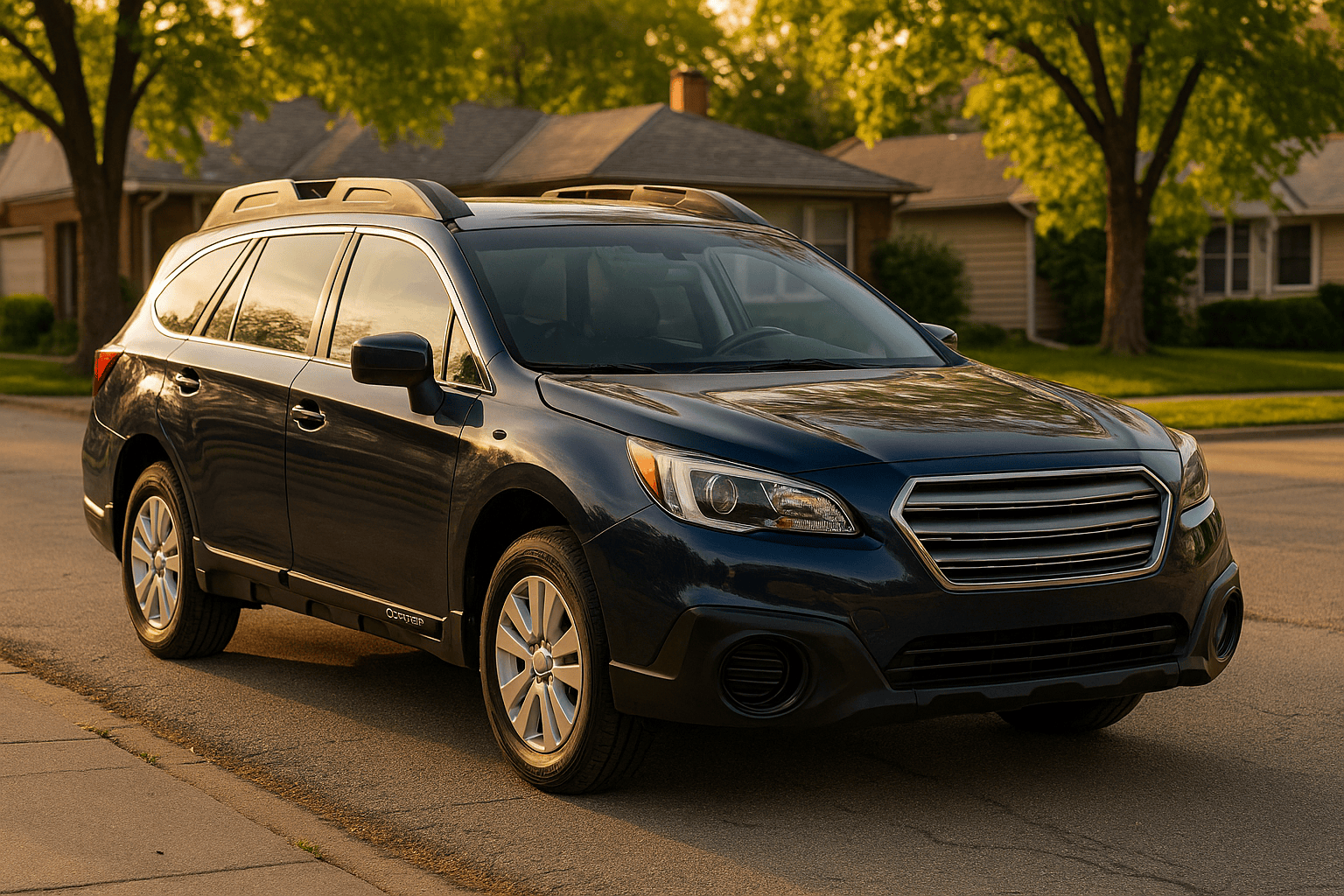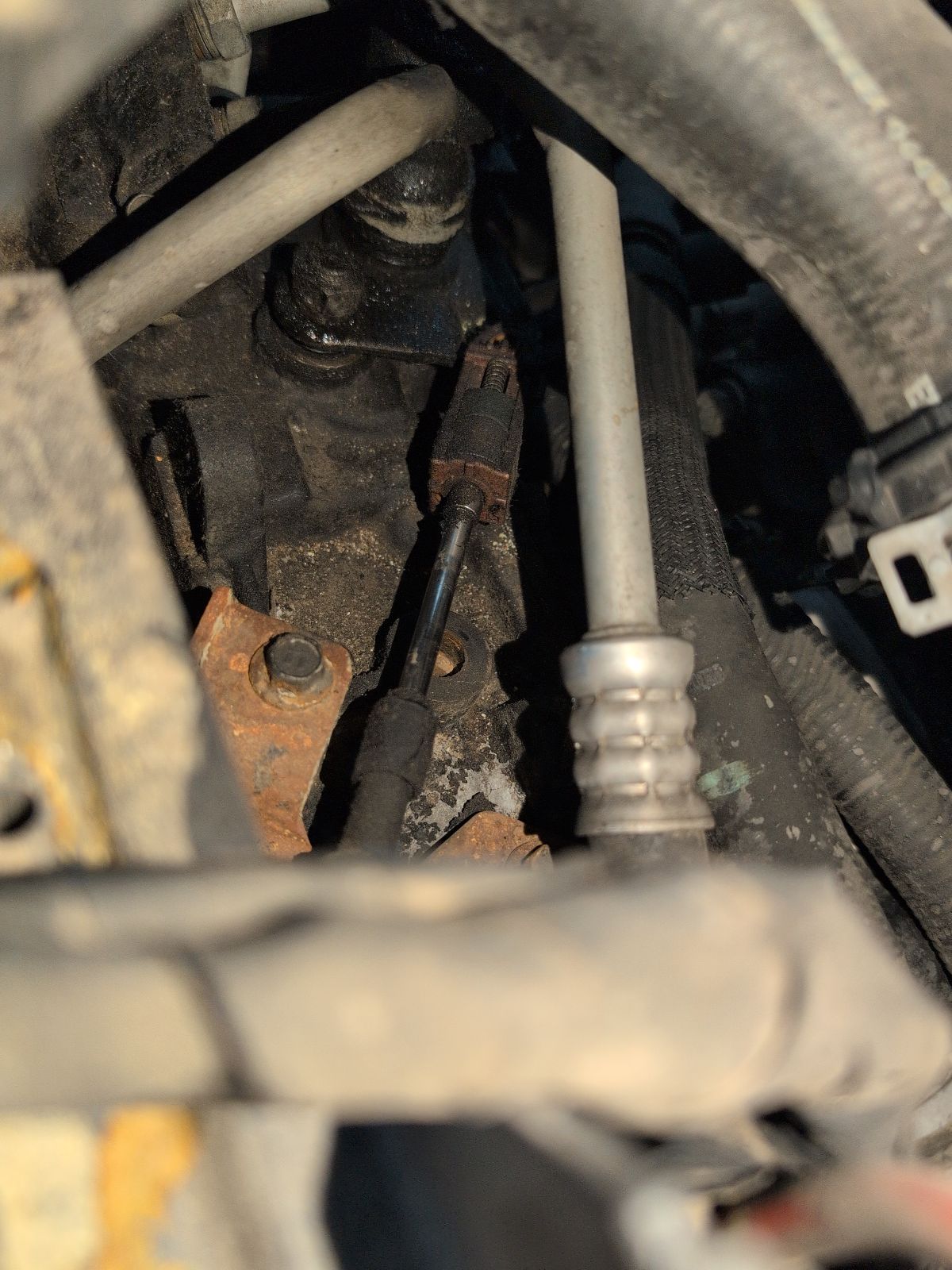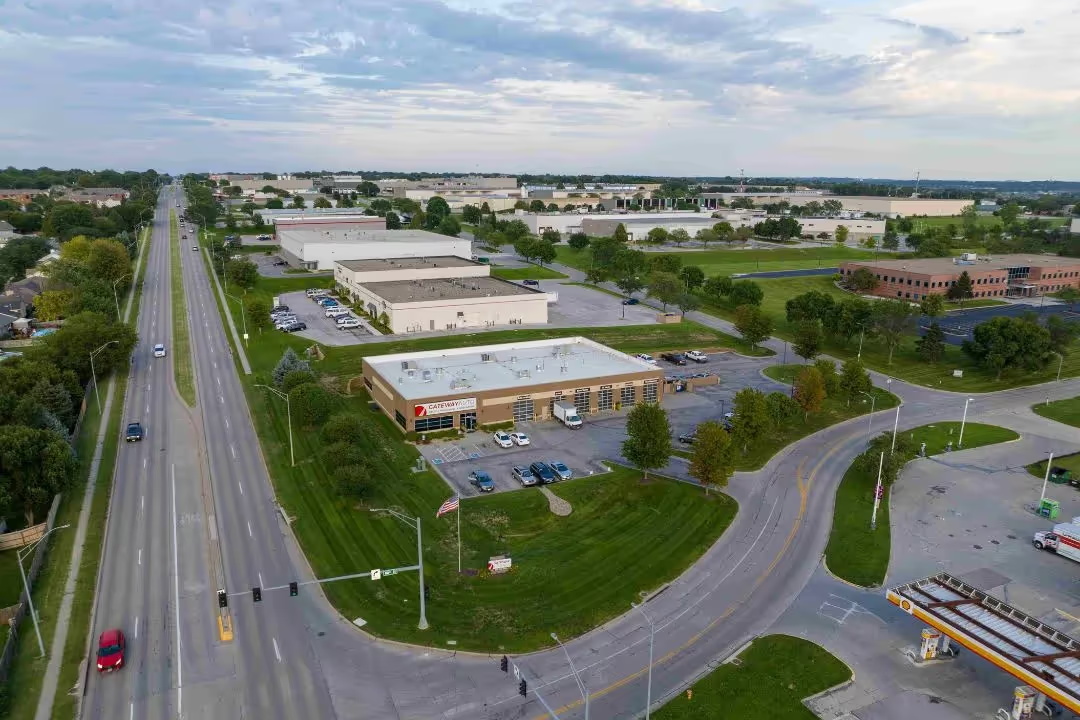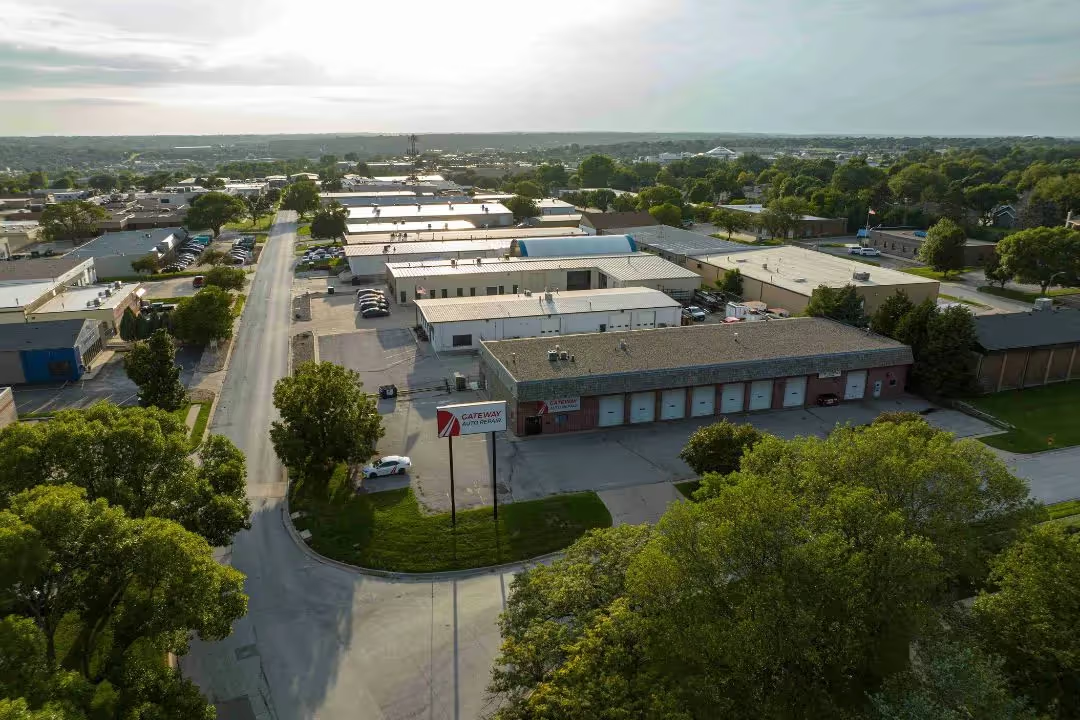Engine Repair & Replacement in Omaha | Gateway Auto
Engine problems range from minor oil leaks to catastrophic internal failure. At Gateway Auto, our ASE-certified technicians have spent 20+ years diagnosing and repairing engines. We'll tell you honestly whether repair makes sense or if replacement is the better investment.
Jump to section:
Engine Diagnostics
Before recommending expensive repairs, we diagnose exactly what's wrong. Engine problems aren't guesswork territory.
Our diagnostic process:
- Listen to customer description - When did it start? What were you doing? Any warning lights?
- Check fault codes - Connect to vehicle computer and read diagnostic trouble codes
- Visual inspection - Look for obvious issues (leaks, damaged components, missing parts)
- Functional testing - Test specific systems based on symptoms and codes
- Provide diagnosis with repair options and cost estimates
Common engine diagnostic tests:
- Compression test (measures cylinder pressure)
- Leak-down test (finds internal leaks)
- Cooling system pressure test
- Oil consumption test
- Exhaust gas analysis
- Scope testing (ignition, fuel injectors)
Diagnostic cost: We charge diagnostic time for complex engine problems. This fee applies toward repair if you proceed with recommended work.
Common Engine Repairs
Head Gasket Replacement
What it does: The head gasket seals the cylinder head to the engine block. It contains combustion pressure, separates oil and coolant passages, and is one of the most critical gaskets in your engine.
Signs of failure:
- White smoke from exhaust (coolant burning)
- Overheating without external leaks
- Milky, tan, or frothy oil on dipstick (oil and coolant mixing)
- Coolant loss with no visible leaks
- External coolant or oil leaks from head gasket area
- Rough idle or misfires
- Sweet coolant smell from exhaust
What causes head gasket failure:
- Overheating (most common cause)
- Age and heat cycles
- Improper installation or torque specifications
- Engine design weaknesses (some vehicles are known for this)
- Detonation or pre-ignition
Our head gasket service includes:
- Remove cylinder head
- Inspect head for warping or cracks
- Machine head surface if needed (must be perfectly flat)
- Check block surface
- Replace head gasket with OEM or better gasket
- Replace head bolts (many are torque-to-yield and can't be reused)
- Replace related components (coolant, thermostat, hoses as needed)
- Proper torque sequence and specifications
- Burp cooling system to remove air pockets
- Test for leaks before delivery
Average Cost: $1,500-$3,500 depending on engine configuration (V6/V8 costs more than inline-4), accessibility, and machine work required
Repair vs. replace decision: If your engine has over 200,000 miles, internal wear, or other problems, head gasket replacement might be throwing money at a dying engine. We'll be honest about whether repair makes sense.
Timing Chain (or Belt) Replacement
What it does: The timing chain (or belt) synchronizes crankshaft and camshaft rotation so valves open and close at precisely the right time. Chains are metal and typically last longer than rubber timing belts.
Signs of timing chain problems:
- Rattling noise at startup or idle (from front of engine)
- Check engine light with camshaft or crankshaft position sensor codes
- Rough idle or poor performance
- Metal shavings in oil
- Stretched chain (identified during inspection)
What causes timing chain problems:
- Worn chain tensioners or guides
- Low oil level or infrequent oil changes (chains need lubrication)
- High mileage (150,000+ miles)
- Engine design issues (some engines have weak tensioners)
Our timing chain service includes:
- Remove front engine covers
- Inspect chain, guides, tensioners, and gears for wear
- Replace timing chain
- Replace tensioners and guides
- Replace variable valve timing (VVT) components if equipped
- Replace front crankshaft seal
- Replace valve cover gaskets if accessible
- Set timing to manufacturer specifications
- Check for proper operation
Average Cost: $800-$2,500 depending on engine configuration and accessibility
Valve Cover Gasket Replacement
What it does: Valve cover gaskets seal the valve covers to the cylinder head, preventing oil leaks.
Signs of failure:
- Oil leak from top of engine
- Oil smell when engine is hot
- Oil dripping onto exhaust manifold (causes smoke and smell)
- Low oil level between changes
Why fix it: Oil leaks make a mess, waste oil, and can damage other components. Oil leaking onto hot exhaust creates fire risk.
Our service includes:
- Remove valve covers
- Clean mating surfaces
- Replace gaskets and valve cover grommets
- Torque to proper specifications
- Check for leaks before delivery
Average Cost: $200-$600 depending on engine configuration (V6/V8 have two valve covers)
Easy maintenance: Valve cover gaskets are straightforward repairs that prevent bigger problems. Don't ignore oil leaks.
Oil Leak Diagnosis and Repair
Common oil leak sources:
Front crankshaft seal:
- Leaks from front of engine
- Often leaks onto timing cover or ground
- Requires timing cover removal to replace
Rear main seal:
- Leaks from back of engine between engine and transmission
- Expensive repair (requires transmission removal)
- Causes oil drip in center of vehicle under engine
Oil pan gasket:
- Leaks from bottom of engine
- Visible oil accumulation on oil pan
- Sometimes requires subframe removal for access
Valve cover gaskets: (covered above)
Oil filter housing gasket:
- Common on some engines (especially BMW, Mercedes)
- Leaks near oil filter
Camshaft seals:
- Leak from front of engine near timing cover
Our approach to oil leaks:
- Clean engine and run it to identify exact leak source
- Determine if leak is minor nuisance or needs immediate repair
- Provide cost estimate for repair
- Let you decide based on severity and budget
Not all oil leaks need immediate repair. A minor valve cover leak that loses a quart every few months? Add oil and fix it when convenient. A rear main seal pouring oil? Fix it before it damages your transmission or creates fire risk.
Engine Overheating Repairs
Engine overheating damages head gaskets, warps cylinder heads, and can destroy entire engines. We fix overheating issues before they cause catastrophic damage.
Common causes:
Coolant leaks:
- Radiator leaks
- Hose failures
- Water pump leaks
- Heater core leaks
- Head gasket leaks (internal)
Thermostat failure:
- Stuck closed thermostat prevents coolant circulation
- Easy, inexpensive fix
Water pump failure:
- Leaking or worn water pump doesn't circulate coolant properly
- Often replaced with timing belt
Radiator problems:
- Clogged radiator can't dissipate heat
- Physical damage restricts airflow
Cooling fan issues:
- Electric fan not running
- Fan clutch failure (mechanical fans)
Head gasket failure: (covered above)
Our overheating diagnosis:
- Pressure test cooling system to find leaks
- Test thermostat operation
- Check coolant condition
- Inspect water pump
- Test cooling fans
- Check for exhaust gases in coolant (head gasket test)
Critical: Don't drive an overheating vehicle. Pull over immediately when temperature gauge goes into red. Continued driving causes severe engine damage.
Engine Replacement
When repair costs approach or exceed replacement costs, or internal damage is too severe, engine replacement is the better option.
When Replacement Makes Sense
Severe internal damage:
- Spun bearings
- Cracked engine block
- Multiple failed cylinders
- Bent valves throughout engine
- Seized engine
High mileage with multiple issues:
- Engine has 200,000+ miles
- Needs head gaskets, timing chain, and has oil consumption issues
- Repair costs would exceed $4,000-$5,000
Catastrophic failure:
- Timing belt broke on interference engine
- Threw a connecting rod through the block
- Severe overheating with warped heads and block
You plan to keep the vehicle:
- Engine replacement makes sense if the rest of vehicle is solid
- You'll get another 150,000+ miles from new engine
- Cheaper than buying a different used vehicle
Engine Replacement Options
Used engines:
- Pulled from wrecked vehicles
- Lower mileage (ideally under 80,000 miles)
- Less expensive option
- Unknown history and wear
- Typically 90-day warranty
Remanufactured engines:
- Professionally rebuilt to factory specifications
- New pistons, rings, bearings, gaskets
- Machined block and heads
- Better warranty (typically 3 years/100,000 miles)
- More expensive but more reliable
New crate engines:
- Brand new from manufacturer
- Rare for passenger vehicles (expensive)
- Common for classic cars or specialty applications
- Best warranty
Our Engine Replacement Process
- Diagnosis confirming replacement is necessary
- Source engine based on budget and needs
- Remove old engine
- Inspect and replace related components:
- All hoses and belts
- Water pump
- Thermostat
- Spark plugs
- Fluids
- Sensors as needed
- Install replacement engine
- Test all systems
- Road test
- Verify no leaks or issues
Timeline: Engine replacement typically takes 2-5 days depending on vehicle complexity and parts availability.
Repair vs. Replace Decision Guide
Use this framework:
Repair makes sense if:
- Engine has under 150,000 miles
- Only one major issue (head gasket, timing chain)
- Rest of vehicle is in good condition
- Repair costs under $3,000
- You plan to keep vehicle 3+ more years
Replacement makes sense if:
- Engine has catastrophic internal damage
- Multiple expensive repairs needed simultaneously
- Repair costs exceed $4,000-$5,000
- Engine has over 200,000 miles with ongoing issues
- You want vehicle to last another 150,000+ miles
Neither makes sense if:
- Vehicle has other major issues (transmission, frame damage)
- Vehicle value is low and total repair costs exceed value
- You're planning to get rid of vehicle soon anyway
We'll help you decide. We're not in the business of selling unnecessary repairs. If engine replacement doesn't make financial sense, we'll tell you.
Engine Maintenance Prevents Expensive Repairs
Most catastrophic engine failures are preventable:
Regular oil changes - The single most important engine maintenance. Use correct oil weight and change at proper intervals.
Coolant system maintenance - Prevent overheating by maintaining cooling system. Flush coolant every 3-5 years.
Timing belt replacement - Never skip scheduled timing belt replacement (if your engine has a belt instead of chain).
Address issues early - Small oil leaks become big problems. Overheating damages head gaskets. Ignoring check engine lights causes expensive damage.
Use quality parts - Cheap parts fail fast. We use OEM or quality aftermarket parts.
Schedule Engine Diagnostics
Engine running rough? Check engine light on? Overheating?
Don't wait for complete engine failure. Early diagnosis saves money.
Call 402-932-0500 or schedule online at gatewayauto.co
Two Omaha locations - find yours at gatewayauto.co/locations
All your automotive needs under one roof
Gateway Auto offers service, collision, fleet and quality vehicle sales under the same trusted brand to ensure you stay on the road with a team by your side.
Service locations
Click each location tab for more information.




